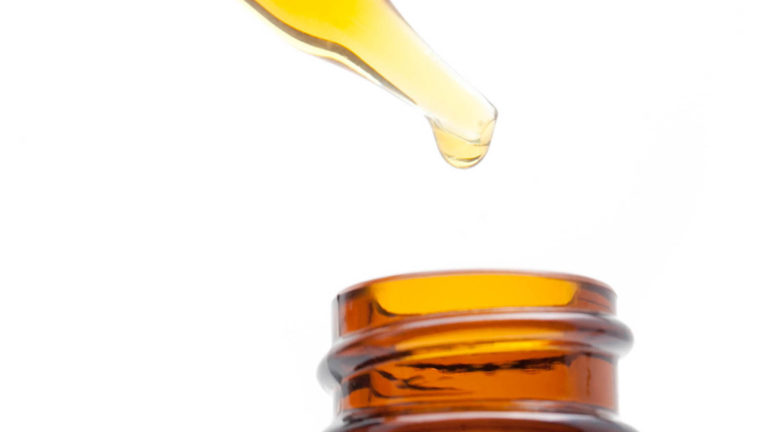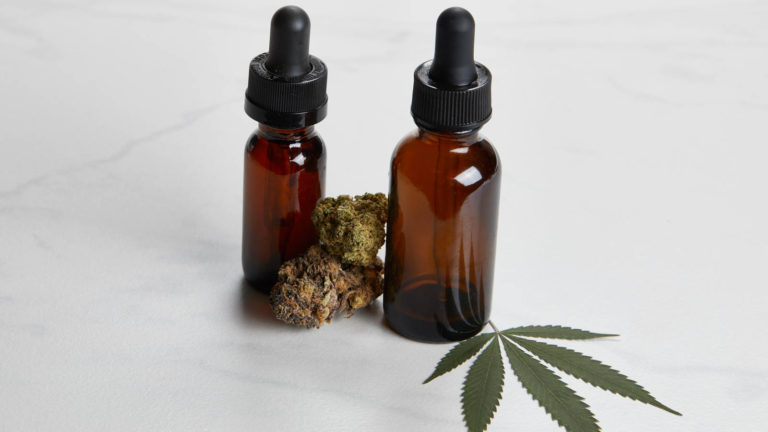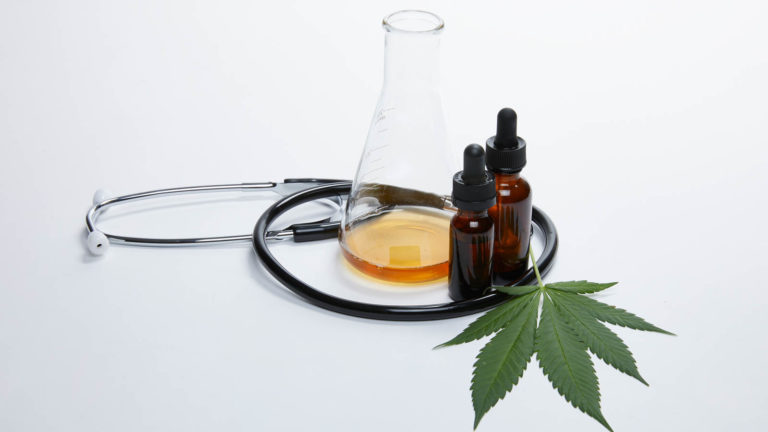Medicinal cannabis became legal in Puerto Rico in 2015. The U.S. territory's legal definition of medicinal cannabis includes cannabidiol (CBD) but excludes industrial hemp. Industrial hemp is cannabis that contains not more than 0.3% THC.
Further, Puerto Rican law uses the term cannabis to refer to medical marijuana, unlike in the U.S. where it is an umbrella term that includes marijuana and hemp.
Act No. 42-2017, which passed in 2017, recognized CBD as one of the two main chemical compounds in cannabis that has a measurable medicinal effect. In 2018, Regulation 9038 established a regulatory framework for the sale, dispensation, and consumption of medicinal cannabis on the island. This regulatory framework provides guidelines for CBD sourced from medicinal cannabis.
More recently, in April 2019, the Department of Health released a memorandum that CBD sourced from industrial hemp must comply with the same quality standards as medicinal cannabis CBD products.
Puerto Rico's Medicinal Cannabis Office, which forms a part of the Department of Health, is responsible for regulating the island's medical cannabis program. The adult use of cannabis remains illegal.
What is CBD?
CBD is a non-intoxicating cannabinoid found in cannabis. It is the second-most-abundant cannabinoid found in the plant after THC. CBD offers anti-inflammatory, analgesic, anti-anxiety, and seizure-suppressant properties. It can be sourced from both marijuana and hemp plants. You can learn more about CBD from Weedmaps Learn.
 Photo by: Gina Coleman/Weedmaps
Photo by: Gina Coleman/WeedmapsImage lightbox

Why is CBD sometimes illegal?
Most CBD is sourced from hemp plants. Even though hemp strains don't produce enough of the cannabinoid THC to cause intoxication, all cannabis plants, including hemp, were considered illegal under the 1970 Federal Controlled Substances Act. The legislation swept all cannabis into the Schedule 1 category, which defined cannabis as a substance with a high potential for abuse, no accepted medical use, and a likelihood for addiction.
The 2018 Farm Bill legalized hemp cultivation and created a pathway to remove some cannabis from Schedule 1 status by creating a legal threshold. Hemp is cannabis that contains less than 0.3% THC by weight, and marijuana is cannabis that contains more than 0.3% THC.
 Photo by: Gina Coleman/Weedmaps
Photo by: Gina Coleman/WeedmapsImage lightbox

Hemp-derived CBD was thus descheduled by the bill, but CBD that is derived from the marijuana plant is still considered federally illegal because marijuana is categorized as a Schedule 1 substance. While hemp is now considered an agricultural commodity, it still must be produced and sold under regulations that implement the bill. The USDA has yet to create these regulations.
The Farm Bill also allows the Food and Drug Administration (FDA) to regulate CBD's labeling, therapeutic claims, and its use as a food additive. Despite the passage of the Farm Bill, the FDA has taken the stance that even hemp-derived CBD may not be added to food and beverages, nor marketed as dietary supplements.
While the FDA has begun a process of re-evaluating its stance on such CBD products, as of late 2019, it has yet to revise its rules or specifically regulate CBD products, leading to further confusion. The FDA has been strict when it comes to health claims and content that could be construed as medical advice about CBD. In July 2019, the FDA sent a letter to manufacturer Curaleaf warning it about making unproven health claims.. In April 2019, the FDA sent similar warning letters to three CBD makers.
The federal legislation still highly regulates the production and sale of hemp and its cannabinoids, including CBD. The Farm Bill also provides that states may also regulate and even prohibit CBD cultivation and commerce. In addition, states may attempt to regulate CBD food, beverage, dietary supplement, and cosmetic products, independently of the FDA finalizing its views on such products.
Puerto Rico CBD laws
Puerto Rico ushered in the legalization of medicinal cannabis in 2015 with the signing of Executive Order OE-2015-035. The order authorized the medicinal use of some or all of the components derived from the cannabis plant, including CBD. According to the 2018 Regulation 9038, the definition of medicinal cannabis includes cannabidiol but excludes industrial hemp.
In 2017, Act No. 42-2017 created a regulatory framework for the sale and use of medicinal cannabis in Puerto Rico. The act recognized CBD as one of the two main chemical compounds in cannabis that has a measurable medical effect and that can treat chronic conditions.
Puerto Rico's Department of Health (Departamento de Salud) is responsible for regulating the island's medical cannabis program. Recreational cannabis is illegal. It is also illegal to smoke medicinal cannabis.
Following the inundation of CBD products of questionable quality onto the market, in April 2019 the Department of Health issued a memorandum that required the production and sale of CBD products derived from industrial hemp to comply with regulations regarding quality and testing, as outlined in Regulation 9038.
The definition of industrial hemp, as outlined in Puerto Rican law, is consistent with the definition presented in the 2018 Farm Bill. Industrial hemp must contain less than 0.3% THC by weight.
However, Puerto Rico does not recognize CBD sourced from industrial hemp as medicinal cannabis. CBD sourced from cannabis, however, is recognized as medicinal and is therefore legal. In contrast, federal law recognizes CBD extracted from the cannabis plant as illegal, while CBD sourced from industrial hemp is legal under the 2018 Farm Bill.
Licensing requirements for CBD
CBD is considered a medicinal cannabis product if it is derived from a plant containing more than 0.3% THC, and not from industrial hemp. As such, it is subject to the same licensing regulations outlined in Regulation 9038 as medicinal cannabis products.
As outlined in the April 2019 memorandum, CBD products that are derived from industrial hemp must also provide the same evidence of testing and quality as marijuana-derived CBD.
The following requirements must be observed:
- The concentration of CBD must be stated on the label and should be expressed in milligrams. If there are other cannabinoids present, as in the case of full-spectrum CBD, the cannabinoids present should be expressed as a percentage.
- The product must list the terpene profile, and provide proof of testing for contaminants such as microbial matter, humidity, foreign matter, heavy metals, residual solvents, or chemical residue.
- Licensed dispensaries must hold valid licenses for selling medicinal cannabis products, including CBD products. Dispensaries with expired licenses can be fined.
- Dispensaries selling products that have not been quality checked and tested for contaminants can be fined.
- Sales and licensing violations, such as those listed above, will be fined $5,000 for a minor infraction, and up to $20,000 for a major breach. Repeated infractions receive increasing fines, or the dispensary's license may be removed.
Puerto Rico CBD possession limits
While there are no possession limits outlined specifically for CBD, there are regulations in place for possession of medicinal cannabis.
 Photo by: Gina Coleman/Weedmaps
Photo by: Gina Coleman/WeedmapsImage lightbox

Only registered patients suffering from a condition diagnosed by a doctor can access CBD sourced from medicinal cannabis. The patient's condition must have been listed among the regulatory list of conditions.
Approved patients are limited to 1 ounce, or 28.35 grams, of medicinal cannabis per day.
There are presently no stated limits regarding the possession of CBD products derived from hemp.
Puerto Rico is developing a pharmaceutical industry based on medical cannabis.
Where to buy CBD in Puerto Rico
At present, the sale of medicinal cannabis products, including CBD products, is restricted to the island's licensed dispensaries where employees may be required to have an academic education about the prescribed products, particularly if they are to hold an occupational license.
However, other Puerto Rican organizations, such as the College of Medical Surgeons, have begun to sell hemp-derived CBD creams, tinctures, and tablets, but the products may not be subject to the same stringent testing as those sold by licensed dispensaries.
CBD products also can be purchased online, where delivery time frames vary widely, from days to weeks.
How to read CBD labels and packaging
Most reputable CBD producers will typically include the following information on their CBD product labels:
- Amount of active CBD per serving.
- Supplement Fact panel, including other ingredients.
- Net weight.
- Manufacturer or distributor name.
- Suggested use.
- Batch or date code.
- Full spectrum, broad spectrum, or isolate.
Full-spectrum CBD oil, also known as whole-plant CBD, combines CBD with cannabis-derived terpenes, a trace amount of THC, as well as lesser-known cannabinoids such as cannabigerol (CBG) and cannabinol (CBN). Broad-spectrum CBD oil contains a similar array of cannabinoids and terpenes but without the THC. Isolates are made by stripping away all other cannabinoids and terpenes, resulting in a crystalline powder that is pure CBD.
CBD oil and CBD-infused product labels should not make any therapeutic or medical claims. The FDA may classify a product as a drug if the label claims that the product treats or prevents disease, or otherwise affects the structure or any function of the body.

